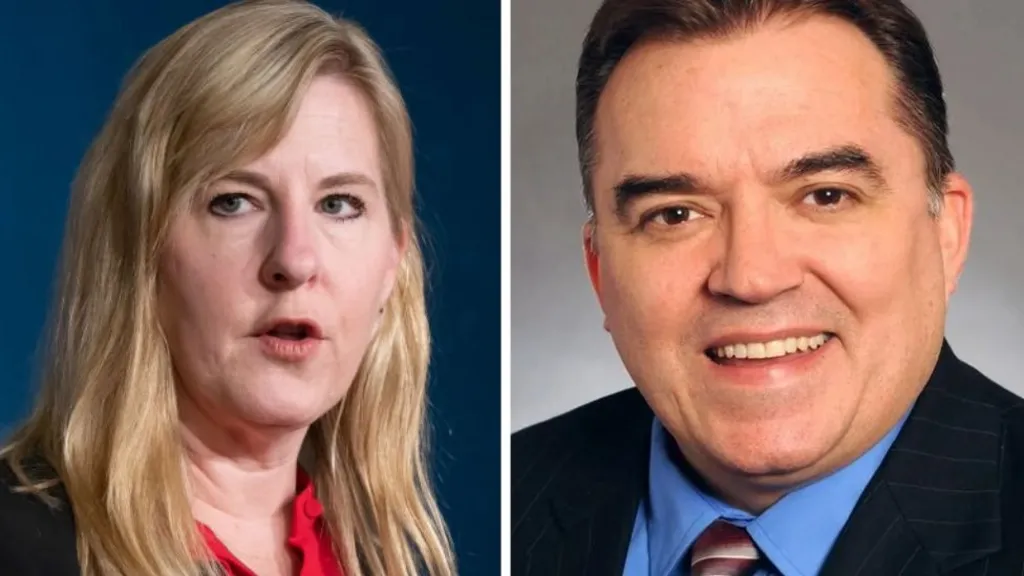In a chilling incident that has stunned the nation, an attack on Minnesota state politicians has left one lawmaker dead and another critically injured. The targeted shooting, which occurred in the quiet suburbs outside St. Paul, has triggered an intense statewide manhunt and raised serious concerns about the growing threats faced by public officials in today’s political climate.
A Shocking Day in Minnesota Politics
According to police reports, the attack took place late Tuesday evening as the two politicians were leaving a community town hall meeting. Eyewitnesses described a dark vehicle approaching the scene before multiple gunshots were fired. One politician died at the scene, while the second was rushed to a nearby hospital with life-threatening injuries.
Law enforcement agencies confirmed that the attack on Minnesota state politicians appeared to be deliberate and premeditated. “This was not random,” said Police Chief Dana Rollins. “The individuals were targeted because of their public roles.”
A Statewide Manhunt Underway
As of Wednesday morning, authorities had launched a full-scale manhunt for the suspect, who remains at large. The suspect is described as a male in his 30s, possibly connected to a known anti-government group. State and federal agencies, including the FBI and U.S. Marshals, have joined local police in the search.
Roadblocks, aerial surveillance, and door-to-door canvassing are underway in areas surrounding the Twin Cities. A $50,000 reward has been offered for information leading to the arrest of the individual responsible for the attack on Minnesota state politicians.
Governor Tim Walz issued a state of emergency and addressed the public in a somber press conference: “This is an attack not just on two individuals, but on democracy itself.”
Victims Identified and Honored
The slain official has been identified as Representative Emily Halvorsen, a rising star in Minnesota’s Democratic-Farmer-Labor Party known for her work on education and healthcare reform. The injured official, State Senator Marcus Reed, remains in critical condition but is expected to survive, according to hospital officials.
Tributes have poured in from across the political spectrum, with colleagues mourning Halvorsen as a “bright light extinguished far too soon.” Vigils were held outside the State Capitol Wednesday night, where hundreds gathered with candles, flowers, and handwritten signs demanding justice.
Rising Threats Against Public Servants
The attack on Minnesota state politicians underscores an alarming trend in the United States: the growing danger facing elected officials at every level. According to the FBI, threats against public servants have more than doubled in the past five years, fueled by political extremism, misinformation, and online radicalization.
Security experts warn that state and local officials are especially vulnerable due to limited protection resources. “We focus so much on national figures, but it’s our local leaders who are often the easiest targets,” said political analyst Dr. Carla Jennings.
This latest tragedy echoes other high-profile incidents in recent years, including the 2017 shooting of Republican congressmen at a baseball practice and the January 6 Capitol insurrection, both of which were rooted in political grievances.
Investigation Continues
Authorities are now working to uncover the motive behind the attack on Minnesota state politicians. While no manifesto has been found, investigators are examining the suspect’s social media accounts and any possible connections to extremist organizations.
Early reports suggest the shooter may have harbored resentment toward recent state legislation on gun control and public health, both issues strongly supported by the victims. “We’re pursuing every lead, every clue,” said FBI spokesperson Jane Lau. “There is no higher priority than bringing this person to justice.”
A Turning Point for Political Safety?
In the wake of the attack, lawmakers are calling for enhanced security measures for public officials, particularly those in state and local government. Some have proposed emergency funding for security escorts, panic buttons in offices, and expanded surveillance systems at public events.
While these proposals have bipartisan support, others argue that increased protection is not enough. “We need to address the root causes—hate speech, polarization, and disinformation,” said State Senator Angela Kim. “Otherwise, the next attack on Minnesota state politicians is only a matter of time.”
Conclusion
The attack on Minnesota state politicians has left a deep wound in the state’s political and civic life. As the manhunt continues and a community mourns, Minnesotans—and Americans—are once again confronted with the reality of how dangerous public service has become.
This was more than a crime; it was a blow to democratic engagement, civil discourse, and the safety of those who dedicate their lives to the public good. Until deeper changes are made—socially, politically, and culturally—the threat remains.


